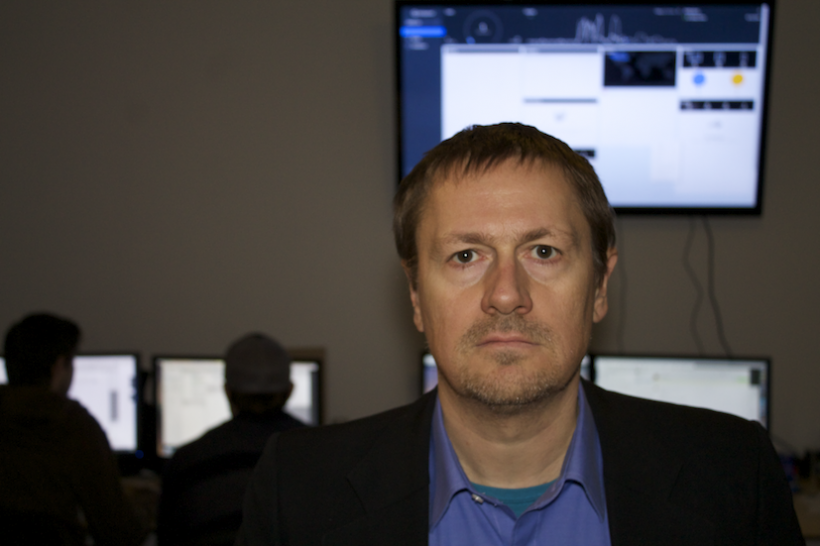Fuelled by a desire to boost the number of people who can write computer code, Simon Gauvin has created Vizwik.com, a social platform that allows anyone to learn computer coding for free and to create and sell apps that work on any mobile phone browser.
Gauvin, 50, is CEO and co-founder of Moncton startup Agora Mobile. He said his cloud-based method of teaching coding uses graphical code, making it more accessible than competing products that use textual code.
Vizwik has already launched in New Brunswick, where Gauvin has signed up about 300 high school teachers to use his system, as well as 1,000 individuals. The North America launch will occur at the Florida EdTech Conference in Orlando in January.
Vizwik is ideal for high school students but can be used by anyone, Gauvin said. One early user created an app that allows clients to contact his plowing company via GPS when their driveways need work.
“The Vizwik social platform will also allow users to sell their apps and learn about entrepreneurship,” Gauvin said.
Both coding and entrepreneurship are vital to the future of this region, in his view.
“Coding is the language of the 21st century. It has become part of nearly every career path, but teachers don’t have the time to learn the complex programming tools to teach coding. We created Vizwik so teachers can fill this gap.”
Fewer than 10 per cent of high schools in North America teach coding, even though more than one million positions are expected to be left unfilled over the next five years due to the lack of qualified people, Gauvin said.
Only about 0.1 per cent of the human population can create software, he said.
“That means that 99.9 per cent of humans are dependent on the software made by this tiny minority. It’s similar to the Dark Ages, when priests were the only ones who could read the Bible in Latin.
“It’s a dangerous situation. We all need to be literate in the language of the 21st century.”
The company is working with Brilliant Labs, an initiative that aims to encourage teachers in the Maritimes to teach coding to students.
Gauvin has been involved in software development for 30 years, although he started out studying architecture at Concordia University in Montreal in the mid-1980s.
He founded Agora Mobile in 2009 while lecturing and working toward his PhD in computer science at Dalhousie University.
He still loves the challenge of creating software.
“The structures we build in computers are some of the most complex ever created by human beings,” he said.
“For example, the Linux operating system took 20 years and over 12 million lines of code to build.”
Gauvin created the coding language used in Vizwik after starting with a grant from the Industrial Research Assistance Program.
It took him five years of PhD graduate research and two years of development to create Vizwik. He partnered with Vodafone two years ago after beginning development work alongside a six-person team.
“This has been an exercise in commercializing academic research. It took a long time to build.”
Recently, Agora was invited to the annual Canadian Ed Tech Leadership Summit in Toronto and won the pitch competition by being voted Best Ed Tech Startup by more than 200 expert delegates.
To date, the company has raised $1 million in equity funding from the New Brunswick Innovation Foundation, East Valley Ventures and several angel investors.
But raising capital has proven challenging, especially as the company progresses, and Gauvin is often on the road, seeking money in larger centres.
He is excited that his product is finally launched.
“Allowing people to express their creativity in the form of software is one of the most powerful things we can do.”










